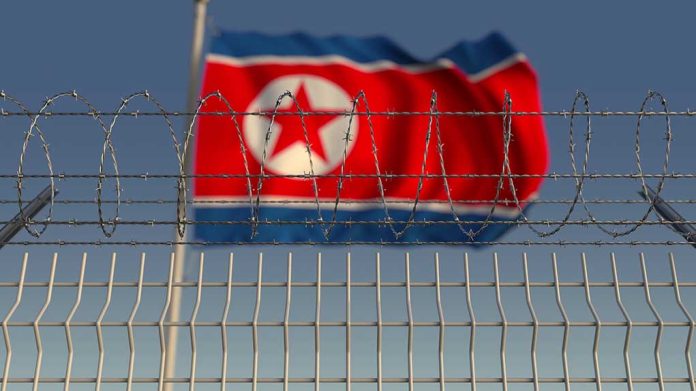
North Korean defectors testified before the UN about friends executed in public for simply watching South Korean TV shows, as the brutal regime’s atrocities are finally exposed on the global stage.
Key Takeaways
- Two North Korean defectors, Eunju Kim and Gyuri Kang, addressed the UN, sharing harrowing accounts of famine, forced repatriation, and public executions under Kim Jong Un’s regime.
- Gyuri Kang revealed that three of her friends were executed, two in public, for distributing South Korean dramas, highlighting the regime’s extreme control over information.
- UN investigator Elizabeth Salmón reported that North Korea’s COVID-19 border closures and new harsh laws have severely worsened human rights abuses in the already isolated nation.
- North Korean troops are being exploited and sent to support Russia in Ukraine, described by defectors as a form of human trafficking by the regime.
- Both defectors urged international action against North Korea and called for the International Criminal Court to investigate regime atrocities.
Defectors Reveal Brutal Realities of Life Under Kim Jong Un
In a landmark United Nations session, North Korean defectors Eunju Kim and Gyuri Kang delivered powerful testimonies exposing the horrific human rights abuses perpetrated by the Kim Jong Un regime. Their firsthand accounts painted a disturbing picture of a nation where citizens face execution for watching foreign entertainment, are subjected to forced labor, and endure widespread famine while the government prioritizes militarization and nuclear programs. The session marked the first such meeting at the UN General Assembly following a resolution specifically addressing North Korea’s human rights violations, signaling growing international concern about conditions inside the hermetically sealed dictatorship.
Kim’s testimony revealed her harrowing journey, having escaped North Korea in 1999 during a devastating famine only to be trafficked in China and forcibly repatriated. After enduring brutal punishment, she managed to escape again, and now advocates tirelessly for accountability. “Silence is complicity. Stand firm against the regime’s systematic atrocities,” said Eunju Kim, addressing world leaders.
Kang’s testimony proved equally disturbing, as she fled during the COVID-19 pandemic after facing persecution for her religious beliefs. She delivered one of the session’s most shocking revelations about the regime’s ruthless control over information. “Three of my friends were executed, two of them in public for distributing South Korean dramas,” testified Gyuri Kang, describing how her friends were killed merely for sharing content they found “so refreshing and more credible than North Korea state propaganda.”
UN Investigation Confirms Worsening Conditions
UN special investigator Elizabeth Salmón presented findings that corroborated the defectors’ accounts, highlighting how North Korea’s self-imposed isolation since 2020 has dramatically worsened an already dire human rights situation. “For over five years, people in the DPRK have been living in absolute isolation. The government’s excessive measure, placed under the COVID-19 pandemic, worsened an already dire human rights situation in the country,” reported Elizabeth Salmón, the UN’s special rapporteur on North Korean human rights.
Salmón detailed how the regime has enacted harsher legal measures, including expanded use of the death penalty and public executions, to maintain control over its population. The report also addressed growing concerns about North Korean troops being sent to support Russia’s war in Ukraine, often without their knowledge of their destination or mission. Kim specifically characterized this practice as human trafficking, explaining that soldiers are exploited while the regime profits from their deployment, using the funds to further develop its nuclear and military programs rather than address the crushing poverty faced by ordinary citizens.
North Korea’s Global Threat and Regime Denial
Human rights experts at the session emphasized that North Korea’s abuses extend beyond its borders, posing an international security threat. “The point I am trying to make here is that North Korea is no longer just a Korean Peninsula threat. DPRK is not longer just a Northeast Asian threat,” explained Greg Scarlatoiu, Executive Director of the Committee for Human Rights in North Korea, highlighting how the regime’s repression fuels global instability.
Predictably, North Korea’s UN Ambassador Kim Song dismissed the session and its revelations as “a burlesque of intrigue and fabrication,” accusing Western nations of greater abuses. He specifically attacked the defectors as traitors, while claiming that no human rights violations exist in his country. This denial comes despite overwhelming evidence from multiple credible sources, including the defectors’ eyewitness accounts, UN investigations, and satellite imagery documenting prison camps and execution sites throughout North Korea. The ambassador’s dismissive response underscores the regime’s continued refusal to acknowledge or address its human rights record.
Calls for International Action
Both defectors and rights advocates urged concrete international action rather than mere condemnation. They called for the International Criminal Court to investigate North Korea’s leadership for crimes against humanity and pressed for targeted sanctions against officials responsible for the worst abuses. Sean Chung, representing a coalition of civil society organizations, proposed creating an independent expert body specifically to analyze North Korea’s human rights violations and their connection to the regime’s weapons development programs, highlighting how funds that could feed the population are diverted to nuclear ambitions.
South Korean Ambassador Hwang Joon-kook reinforced this point, stressing the interconnection between the regime’s human rights abuses and its nuclear program. The defectors’ powerful testimonies put a human face on North Korea’s systematic abuses, making it increasingly difficult for the international community to ignore the suffering of the North Korean people. As Kim powerfully stated, “Silence is complicity” – challenging world leaders to take meaningful action rather than allowing the Kim regime’s atrocities to continue unchecked behind closed borders.



